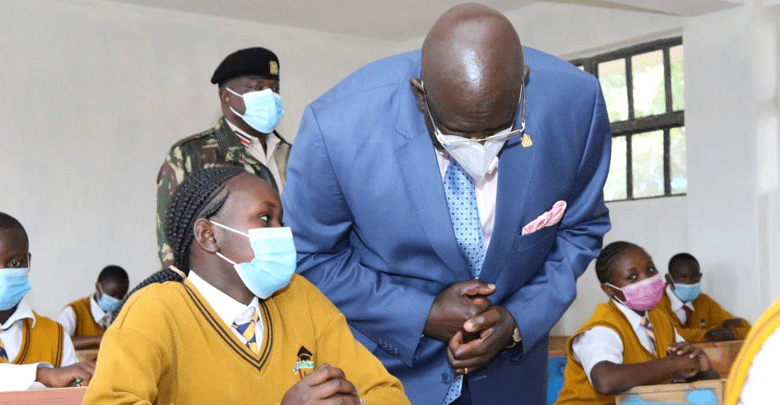It is useless to cheat in the examinations these days
By Kennedy Buhere, April 13, 2021Last week, the principal of Sori Secondary School in Migori, Wycliffe Manoa, said his purpose as a teacher and as school head is to build the intellect and character of learners and that’s why the temptation to cheat in the national exams has never occurred to him throughout his career years.
Speaking during a conversation with Early Learning and Basic Education PS Julius Jwan, who was inspecting the ongoing KCSE exams in the region, Manoa said the purpose of education is to develop all round students and cheating in exams undermines that goal.
The PS was visibly impressed with the attitude and confidence of the principal, saying the ministry counted on the trust of centre managers, supervisors and invigilators and their appreciation of the ultimate purpose of education to deliver clean exam results.
The rigorous rules that guide the administration of exams since 2016 are aimed at securing the validity and reliability of exam and consequently the authenticity and recognition of certificates issued.
Attempts to circumvent the rules is actually an affront to education policy, standards, curricula and exams as enshrined in sector statutes.
Assessment is an integral part of instruction. It determines whether or not the goals of education are being met.
In general, the purpose of education is to develop to the fullest possible extent, the innate intelligence and character of learners.
This is attained through exposing learners to an educational experience that furnishes them with appropriate knowledge, skills and attitudes.
Essentially, therefore, exams help policymakers in education to answer the questions: Are we teaching what we think we are teaching? Are students learning what they are supposed to learn?
Is there a way to teach the subject better, thereby promoting better learning? Have learners mastered basic skills?
Will the experience allow them to face a ever-changing world? Can the students think critically, analyse and make valid inferences from a set of relevant situations?
Exams, which are used to answer the foregoing questions, help policymakers to determine a number of education issues.
Whether the curriculum the students are exposed to has the capacity to develop the intelligence and the character of the children; how well the students were exposed to the envisaged learning experience and how much they learned anyway.
To answer the questions, and do so truthfully, administration of exams must be beyond reproach.
There must be no monkey tricks at any stage of the process. Integrity must be the byword.
A complete exam process has three broad phases: pre-examination; examination and post-examination.
The government has effectively curbed monkey business at the pre-examination phase.
There is zero leakage of exam scripts at this stage. There is also zero monkey business at the post-examination stage—after the students have sat the exams and the answer sheets are back into hands of the Kenya National Examinations Council.
The government has taken decisive measures to secure the integrity and credibility of exam process at all the three phases—thanks to the multi-agency approach to the administration of exams.
Attempts at meddling with integrity of the exam process, as Education CS George Magoha observed, are between the distribution of the exams papers from the container and the actual time a particular paper is given to candidates.
A few misguided people seem determined, against odds, to frustrate an otherwise tight exam administration regime at this stage.
And like Jwan has been reiterating, cheating at this stage is useless. There is little or no time for the crooked teachers to read the questions, think through possible answers, write them down and let the students have them to copy.
It only causes unnecessary anxiety and dependency in students who, left alone, are likely to satisfactorily tackle the exams without let or hindrance.
Individuals involved in this malpractice actually not only violate exam regulations but also mess up the lives of the very students they want to help.
The help they want to give is a poisoned chalice—a nuisance, a burden and headache to the students.
Exam officials ought to recognise and appreciate that the validity and reliability of any test and consequently the authenticity of certificate issued is sacrosanct. — The writer is communications officer in the Education ministry
